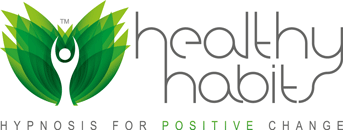HEALING CHILDHOOD WOUNDS: 4 WAYS RAPID TRANSFORMATIONAL THERAPY (RTT) CAN TRANSFORM YOUR LIFE TODAY.

How Our Past Affects Us Today
We often hear that childhood experiences shape who we become as adults. But what does that really mean? How can healing childhood wounds transform our lives today, even decades later?
The truth is, many of the struggles we face in adulthood—whether it’s social anxiety, unhealthy coping mechanisms, or relationship issues—often have deep roots in our formative years.
In this post I wanted to share four examples of how healing childhood wounds can have a profound impact on our current lives and how RTT can achieve this for people.
1. Social Anxiety: Breaking Free from the Fear of Judgment
Imagine feeling crippling anxiety in social situations—whether it’s walking into a crowded room, attending a work event, or even engaging in casual conversation. This can stem from childhood experiences where you may have felt unworthy, judged, or rejected. Perhaps you were teased by peers, or maybe you grew up in an environment where you weren’t encouraged to express yourself freely.
These early experiences can lead to a deep-rooted fear of judgment and rejection, which shows up as social anxiety in adulthood. But by healing those childhood wounds, you can break free from this limiting belief. When we address the root cause of social anxiety—often a belief like "I’m not good enough" or "People won’t like me"—and replace it with a belief that you are worthy of acceptance, confidence in social situations naturally grows.
Through therapies like Rapid Transformational Therapy (RTT), we can access and heal the moments in your past that planted those seeds of self-doubt. As a result, you’ll begin to approach social situations with a calm, grounded sense of self-worth.
2. Numbing Out with Alcohol: Releasing Unhealthy Coping Mechanisms
For many, turning to alcohol (or other substances) becomes a way to cope with stress, loneliness, or unresolved pain. This habit of numbing out can often be traced back to childhood trauma or emotional neglect. If, as a child, you weren’t given the emotional support to process difficult emotions, you may have learned to suppress or avoid them altogether.
In adulthood, that avoidance can manifest as unhealthy coping mechanisms—such as excessive drinking—to numb emotional pain or discomfort. The problem is, numbing doesn’t heal the underlying wound; it only masks it temporarily. By healing the childhood wounds that created the emotional void, we can begin to develop healthier coping mechanisms.
Through RTT, we can uncover why you turn to alcohol in the first place and identify the emotions that have been left unresolved. When you release the emotional weight from your past, you’re no longer driven to escape through unhealthy behaviors. Instead, you can process emotions in a healthy, productive way, free from the need to numb out.
3. Lack of Confidence at Work: Rewriting the Story of Unworthiness
Do you ever feel like you’re not good enough at work? Maybe you hesitate to speak up in meetings, or you downplay your achievements, fearing you don’t deserve recognition. This lack of confidence can often be traced back to messages you received in childhood. Whether it was from parents, teachers, or peers, if you were told—directly or indirectly—that you weren’t smart enough or capable, those beliefs likely stuck with you.
As adults, we carry these limiting beliefs into the workplace. They show up as imposter syndrome, hesitation, or an unwillingness to take risks. But by healing the wounds of feeling "not enough" in childhood, you can rewrite the story of your worth and this can help you today!
RTT helps you access the subconscious beliefs that are holding you back. By revisiting and reframing past experiences where you maybe felt inadequate, we can replace those beliefs with empowering ones. You begin to see yourself as competent, worthy, and capable of achieving your goals at work. Over time, this newfound confidence will allow you to shine in your career, unburdened by the self-doubt of your past.
4. Relationship Anxiety: Letting Go of Fear and Insecurity
Many people struggle with relationship anxiety—whether it’s fear of abandonment, constant worrying about a partner’s feelings, or difficulty trusting in love. These anxieties often have their roots in childhood. If, as a child, you experienced inconsistent love or felt emotionally unsafe, you may have developed a deep fear of being abandoned or rejected.
In adult relationships, these wounds show up as anxiety and insecurity. You might worry your partner will leave or struggle to trust their intentions. By healing the childhood wounds that created this fear, you can begin to experience relationships with greater security and trust.
RTT is especially effective in addressing relationship anxiety because it helps you revisit those childhood experiences where you first felt unsafe or unloved. When you process and heal these wounds, your mind no longer clings to the fear of abandonment. Instead, you can approach relationships with more calm and confidence, knowing you are worthy of love and secure in the relationships you create.
The Power of Healing Childhood Wounds
Each of these examples shows how childhood wounds can shape our adult lives in profound ways. Whether it’s social anxiety, unhealthy coping habits, lack of confidence, or relationship struggles, these issues often have deep roots in our early experiences.
But the incredible thing is that healing those childhood wounds can change everything. I've seen it again and again in my clients and colleagues' clients, as well as in myself!
With the right tools and guidance, such as through Rapid Transformational Therapy (RTT), you can heal those old wounds, release limiting beliefs, and create new, empowering narratives that allow you to thrive in every area of your life.
If you’re ready to explore how healing your past can transform your present, I invite you to learn more about how RTT can help. It’s never too late to heal—and the changes you experience can last a lifetime. Have a read about RTT here and visit some of the results from actual people here.







































































Comments